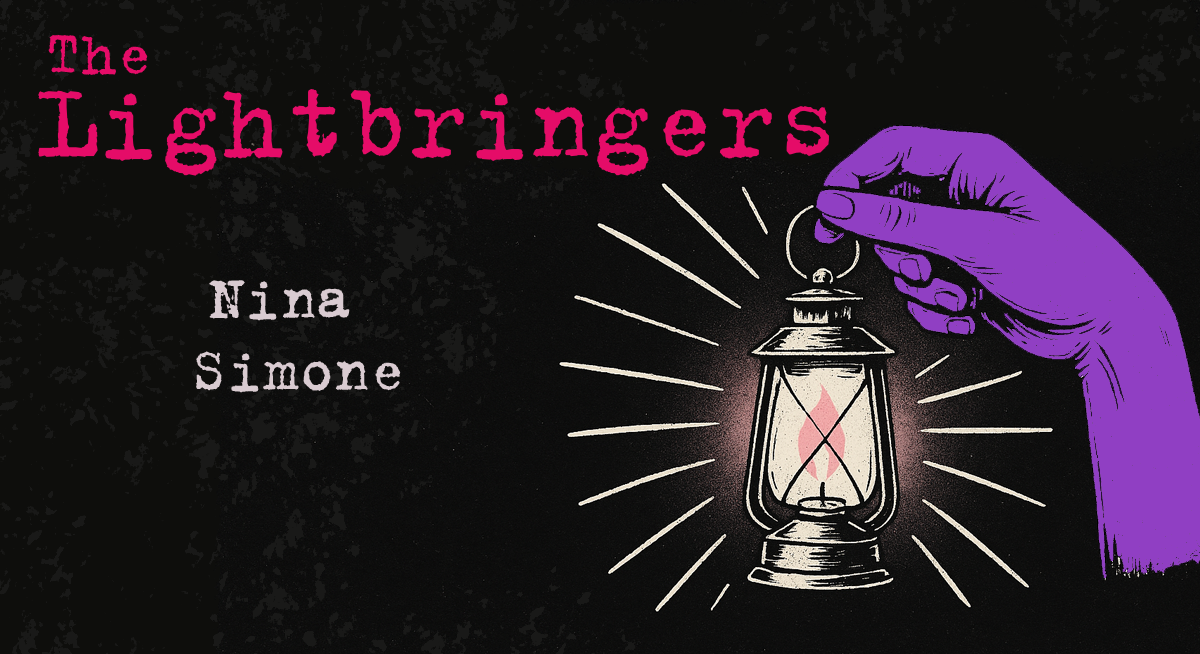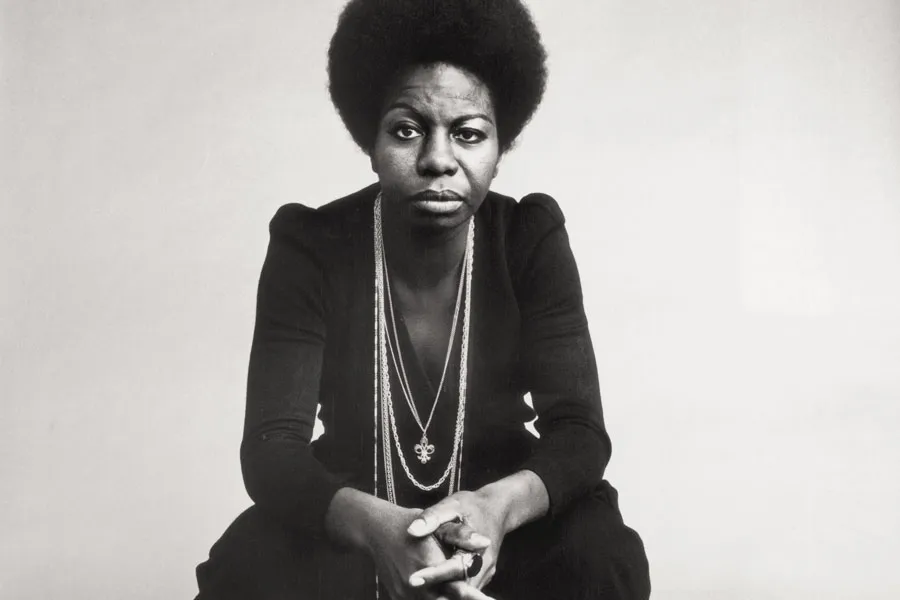


ightbringers is a series honoring the artists, advocates, and everyday people whose presence brings something luminous into the world. These are the voices that offer warmth, clarity, or courage when things feel dark. Not because they’re perfect—but because they keep showing up, and they remind us we can too.

There are voices you carry with you—not just in memory, but in the marrow. Nina Simone’s voice is one of them.
She didn’t sing to soothe. She didn’t write to appease. She sang to say something. And the world wasn’t always ready for it.
I’m not writing this to explain Nina Simone. I can’t. I’m not qualified to interpret her legacy—plenty of brilliant BIPOC writers, scholars, and artists have been doing that long before I ever pressed play.
I write this as someone listening, learning, and being changed by it. This is not a dissection. It’s a reflection—on what happens when you let a voice like hers all the way in.
I don’t have the right to educate you on Nina Simone. But I can urge you to take time out of your day to visit her. Sit with her. Let her voice fill the room. Let it fill the silence. Let it say what it needs to say.
The first time I really listened—really listened—to “Mississippi Goddam,” it wasn’t just a song. It was a callout. A gut punch. A refusal wrapped in melody. It made me uncomfortable. That discomfort was the point. Nina Simone wasn’t interested in making the truth easier to swallow. She made it impossible to ignore.
Her voice rang out. But many systems around her didn’t want to hear it—and some still don’t.
And even now, decades later, her voice still doesn’t flinch. She sings about being tired of silence, of injustice, of watching the world move on like nothing’s wrong. She sings, and the shame is still relevant. The anger is still righteous. The grief is still unhealed.
Listening to Nina Simone today isn’t passive. It’s an act. It’s a choice to sit with discomfort and not look away. To bear witness.
She was a musician, yes—but she was also a revolutionary. She used her voice as a weapon and as a prayer. She sang what many were too afraid to say. She lost opportunities. She lost safety. And in a spiritual and cultural sense, she lost her place in the country she once called home. In her own words: “I left America because I was disgusted. I couldn’t stand it anymore. I felt betrayed. I was just worn out. I’d had enough.”
She is a lightbringer to me not because she softened the world. But because she burned through it. Her voice lit fires. Her music still holds heat.
Nina Simone didn’t sing for me. But she sang truths I needed to hear anyway.
She made sure her music couldn’t be ignored.
And I’m writing this not to claim her legacy, but to say: I’m still listening.
To Bear Witness: A Listening Companion
